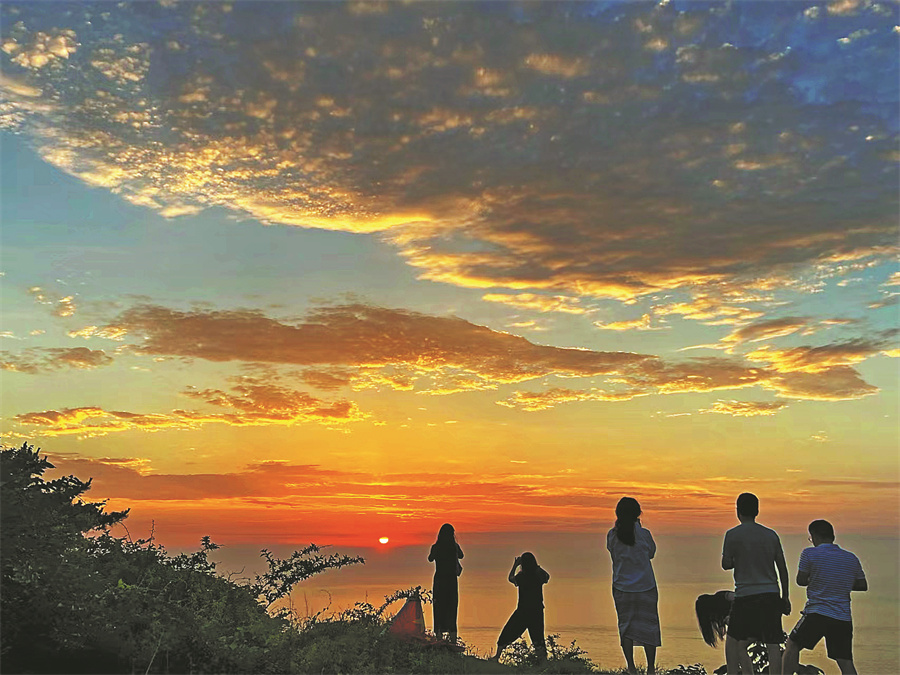Escape the city, embrace shores and slow living
Qingdao's island havens blend untouched beauty with mindful tourism, offering serene retreats of conservation and exploration


"The Lingshan Island is a pristine, untouched island. Tourists come here to escape the hustle and bustle of the city. They enjoy coffee, watch the sunset, and truly relax," said Ren Xiangdong, a local B&B owner.
One of the most striking features of the Lingshan Island is its commitment to ecological conservation. Its carbon dioxide emissions hit negative 1,333 tons in 2021, making it China's first carbon-negative sea island, according to the China Quality Certification Center.
This achievement is the result of years of dedicated efforts. In recent years, the island has undergone a green transformation, embracing low-carbon development through overhauling residents' lifestyles and upgrading industries.
In 2020, the island launched an initiative to switch from coal to electricity for winter heating. "In the past, we used coal-heated stoves for heating, which made the village smell of coal smoke and posed safety hazards. With electric heating, our homes are warmer, cleaner and more comfortable," said Teng Yanfang, a local resident.
In addition to reducing carbon emissions, the local authorities have been focusing on increasing carbon sinks.the Lingshan Island has implemented a carbon inclusion incentive mechanism across the island, developed a WeChat mini-program for carbon inclusion activities, and established a carbon points exchange system.
The area has designed 24 carbon points application scenarios, such as "taking trash off the island".
"Residents and tourists can exchange their points for eco-friendly products like canvas bags and solar-powered chargers at the low-carbon store," said Li Wenhui, deputy director of the Lingshan Island Provincial Nature Reserve Management Committee.
The carbon inclusion incentive mechanism has inspired public participation in carbon reduction actions, she added.
"So far, it has attracted nearly 20,000 residents and tourists, who have exchanged over 5,000 ecological products," said Li.
























